TGIF :: Are We Being Duped?
Weekly drop #43 || Leveraging the intense cognitive experience of being deceived to reframe one's perspective on alcohol
You’re reading this because (1) you are a subscriber to ClearLife (thank you!), (2) you stumbled upon my work, or (3) someone shared it with you. If you are in the latter camp, rather than being defensive, I invite you to stay curious, assume best intent (they care about you), and listen to your true self, whatever that voice calls you to do or feel today. ❤️
Once upon a time, I was trying to talk a teenager out of nicotine vaping. “It’s terrible for you, addictive, full of toxic chemicals, and you’re an athlete!” After a few weeks of trying to get him to stop with what I can only call shame-coaching, it was clear that my attempts were failing.
“Have you tried pointing out that he’s being duped?” my dear friend and youth wellness expert suggested. “They hate it when they realize they’re being influenced or controlled by someone or something else.”
Sure enough, something shifted when I changed my message to “Don’t be fooled. You’re smarter than that. Don’t let a room full of brilliant marketers who’ve figured you out convince you to do something you know is a bad idea.”
It was a reminder of Rule Number One in habit shifting: The choice has to come from the from the inside, not the outside.
This got me thinking. For the hundreds of millions of people who are trying to drink less or not at all (80 million in the U.S. alone), could a similar approach—realizing that we are being DUPED—make it easier?
Maybe we’re under their influence.
Many of us know drinking isn’t great for us, but do it anyway, with 2.3 billion people “drinking regularly,” as reported by the World Health Organization (WHO).1
But it’s getting harder and harder to ignore all of the science encouraging us to drink less or quit altogether: As stated by the WHO last year, no amount of alcohol is safe for our health. It’s a known group 1 carcinogen with direct links to seven deadly cancers and 200 additional health concerns (not to mention countless social, cultural, and family-related harms).
You can read more about such health risks, including my own intimate experience of learning about the link between alcohol and breast cancer in a previous post: Informed Choices, Alcohol & Cancer, and Why They're Freaking Out in Europe This Week.
When we take a look at the scale of efforts (and dollars!) going into keeping us in these habits, it does appear that we are in fact, being duped:
1. Big Alcohol Marketing
Alcohol sales exceed $1.5 trillion annually. The industry spends upwards of $8 billion a year to keep these sales rates up, often targeting women and young people (populations that statistically drink less than adult men). Extensive details can be reviewed in this report from the National Institute of Health: The Alcohol Marketing Landscape: Alcohol Industry Size, Structure, Strategies, and Public Health Responses.

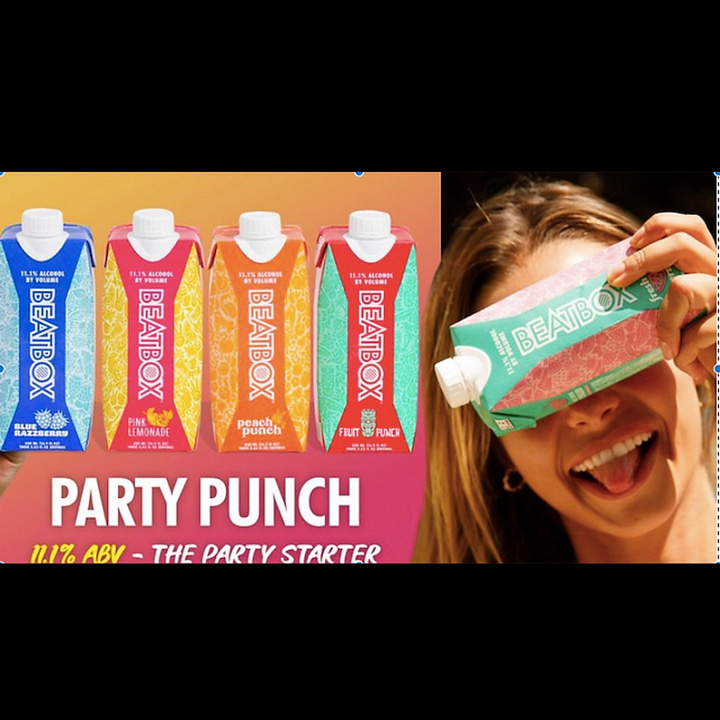
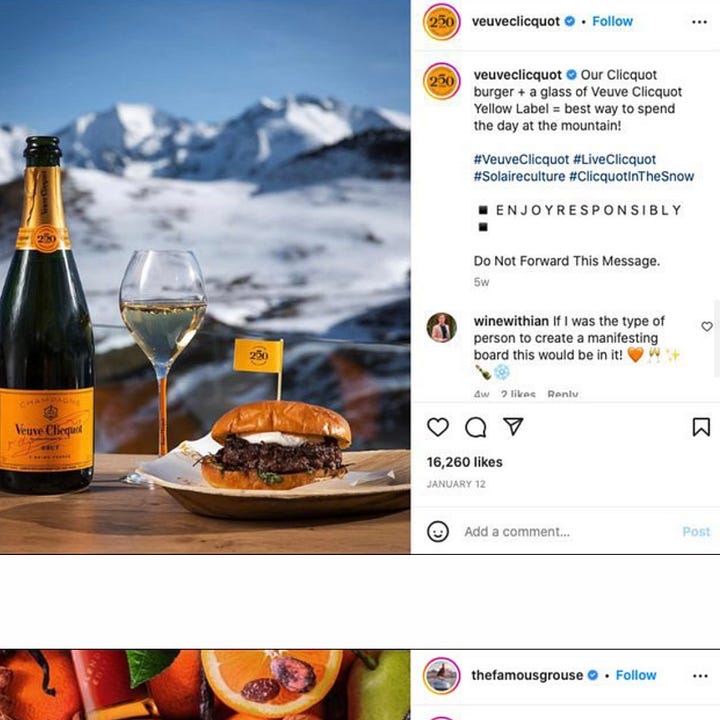
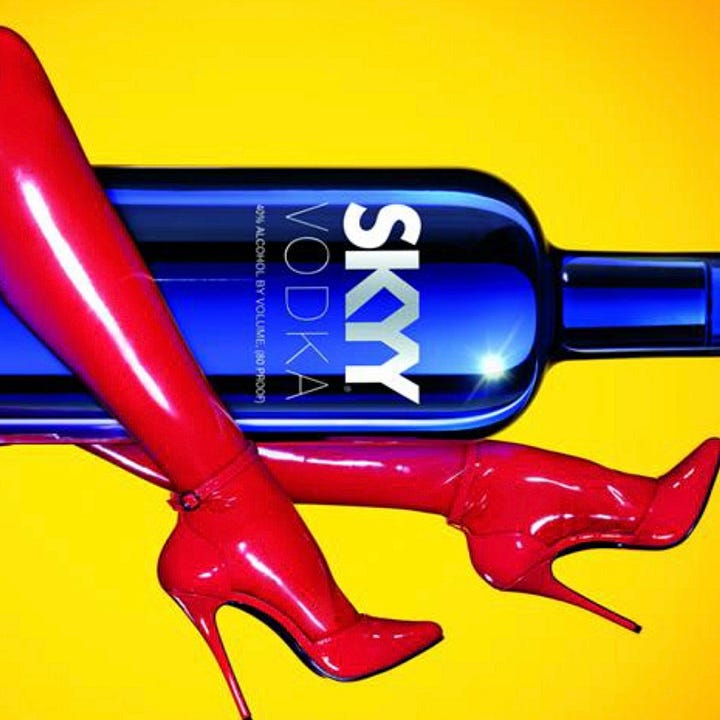
The marketing efforts of alcohol producers are widespread and include advertising, sponsorships, on-premise promotions, product placements, and stakeholder marketing. According to a 2022 Nielson report, alcohol marketers spend 50% of their advertising budget on digital platforms, especially Instagram and TikTok, leading us to believe that drinking is sexy, fun, attractive, and a great way to unwind, celebrate, appear sophisticated. Studies show the messaging is fairly consistent:
Sobriety is associated with having a bad time. Alcohol use means good times.
Alcohol can transform experiences from dull to enjoyable.
Alcohol relieves stress (despite evidence of its detrimental effects on mental health and well-being).
Drinking supports women’s independence, weight control, and glamour.
We should “drink responsibly.” (Note that this message serves to promote products rather than public health and contributes to the normalization of alcohol consumption.2)
It’s no wonder so many of us are confused about our relationship with booze.
2. Lobbying Spend
It is well known that commercial lobbying interferes with the development and implementation of public health policies—by design. The alcohol industry spent $541 million on lobbying in the period between 1998 and 2020 in the United States alone.3
Big alcohol lobbying efforts:
Oppose alcohol taxes.
Oppose more informative warning labels on alcoholic products.
Misrepresent evidence of health risks (see NYT stories on a recent series of events here and here).
Weaken regulations designed to protect public health interests.
For a deep dive on these efforts and impacts, see The Lancet’s April 2022 piece: Shining a light on international alcohol industry lobbying.
3. Other information obstructing efforts
Following in the footsteps of Big Tobacco, the alcohol industry is actively involved in suppressing or manipulating information about the health risks associated with alcohol consumption. As reported by the NIH report “Under the influence: system-level effects of alcohol industry-funded health information organizations,”
“the alcohol industry is active in funding corporate social responsibility initiatives, with a particular focus on ‘responsible drinking’ campaigns, often facilitated by national-level charities established and/or funded by the alcohol industry and associated organizations.”
A recent example (as also covered by the New York Times):
“In 2018, a $100 million clinical trial on how ‘moderate’ alcohol use affects health was cancelled in the US. This was because it was found to be biased towards producing findings that small amounts of alcohol have health benefits. The trial was paid for by both the alcohol industry and the National Institute on Alcohol Abuse and Alcoholism (NIAAA), the self-described largest funder of alcohol research globally.
You can read a full report here and a deep dive on some of these efforts, as prepared by Movendi International, here.
So, are we being duped?
We are increasingly “alcohol aware.” I know from my own anecdotal experience that even in the last six+ years since I paused my own drinking habits, responses to my choices have shifted from “Oh, I didn’t know you had a problem” to “That’s awesome. I’d love to do that myself.” Yet, I also know (from many of you!) tht slowing down or stopping can be tough, primarily thanks to all of the social, cultural, and marketing messages steering us back towards habits we seek to break.
Surprisingly, the emerging research on the health risks associated with even moderate drinking don’t seem to be having much of an effect. Like smoking for so many in the past, a common thought is “I’ll quit or slow down when there’s a red flag or symptom telling me I’ve overdone it.” Sadly, by the time we have a GI cancer, a liver disorder, or other health issue attributable to drinking, it’s typically too late to reverse the damage.
But we hate being duped.
“In the American moral vernacular, we have a whole thesaurus for victims of exploitation. They are suckers (born every minute), fools (not suffered gladly), dupes, marks, chumps, pawns, and losers. Fool me once, shame on you; fool me twice, shame on me. Cultural stories about suckers abound too: the Trojan Horse, the Boy Who Cried Wolf, the Emperor’s New Clothes, even Hansel and Gretel. If you believe that, I have a bridge to sell you. Don’t go out with him; he only wants one thing. The fear of playing the fool is not just a descriptive fact; it is a prescriptive theme: Don’t let that be you.”4
Maybe we can coach ourselves: “I don’t want to be fooled. I’m smarter than that. I’m not going to let a room full of brilliant marketers or lobbyists convince me to do something I know is a bad idea.” Research confirms that “feeling cheated is an unusually intense cognitive and emotional experience. It is so aversive that people will go way out of their way to make sure it doesn’t happen.”5 Maybe we should leverage that?
About that teen…
I can’t say with certainty that he never hits a vape pen, but considering that he might be being duped definitely got through to him in ways other messages didn’t.
I predict that by the time today’s teenagers are raising their own, we’ll view alcohol in a manner similar to have we now see tobacco products: addictive, unhealthy, and not cool (despite some fantastic film scenes to the contrary). The newest generations among us already recognize this with young adults drinking less than in prior decades (Gallup detail here).
What can we do to ensure we aren’t being duped?
Here are a few ideas:
Take a 30, 60, or 90 day break from an unhealthy habit and assess: How does it feel? Are temptation triggers from the inside (random desire) or the outside (impacted by environments, people, messaging)?
Limit exposure to alcohol marketing by turning off the category in social feeds (how to here), skipping the glossy magazines, and skipping advertisements during sporting events.
Try “un-duping” yourself by reading scientific materials about the true effects of alcohol (I’ve linked to many above) or spending a little time in an alcohol-infused environment, sober. These can be real wake-up calls!
Do your best to act from conscious agency. Resist doing things out of habit or under the influence of others or the marketing information that surrounds us.
I’ve yet to meet someone who regrets no longer drinking, yet countless people who wish they’d given it a shot sooner.
Be well.
❤️
Miscellaneous…
Sangha Saturdays… The next zoom version is tomorrow, Saturday February 3rd, at 9am PT. The next in-person version will be Saturday February 24th at 9am PT in Mill Valley, CA. RSVPs required. If you’d like to join, please indicate your interest here and you’ll be added to the (anonymous) calendar invitations. 🌟
Want support with your meditation practice? After a month of very well attended gatherings (via Zoom), my partner Soren and I together launched a year-long offering of weekly practice in community. Our next session is next Friday February 9th with our beloved friend Lama Tsultrim Allione. Details here. 🎋
Yes, please share with me…! I love your notes and feedback, your podcast and article finds, your perspective on all things ClearLife and beyond. Thank you for sharing your discoveries with me. Keep them coming. 🙏🏼
List extracted from broad web search results, enabled by a recent entrant onto the search scene, perplexity.ai. Yes, I like it more than Google, even with the $20/month price tag!
Novel Insights Into Big Alcohol’s Lobbying Footprint in the United States, published by Movendi January 15, 2024.
From the description of Fool Proof: How Fear of Playing the Sucker Shapes Our Selves and the Social Order—and What We Can Do About It, By Tess Wilkinson-Ryan, February 2023.
Why We Hate Being Scammed, Time Magazine, February, 2023.





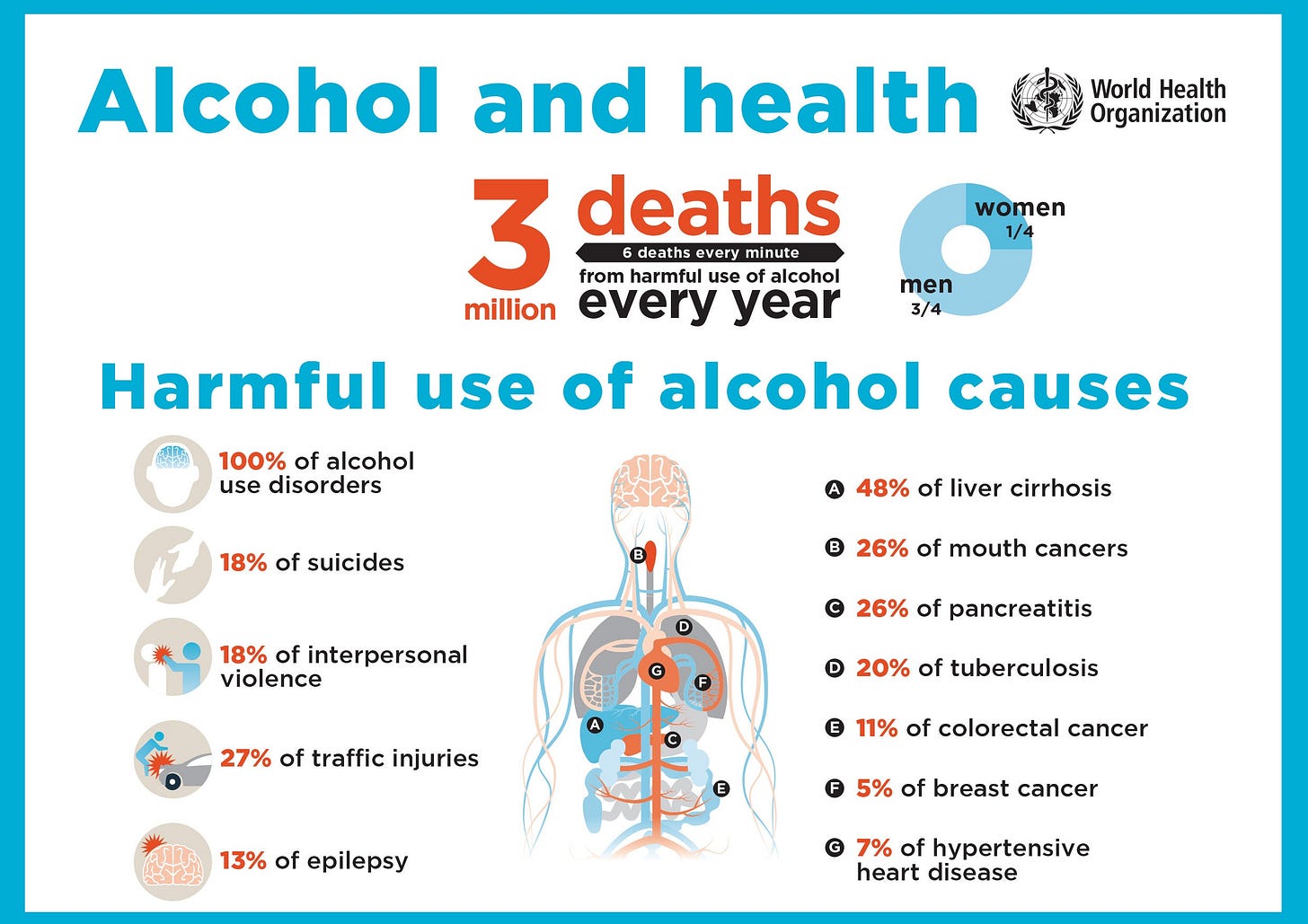
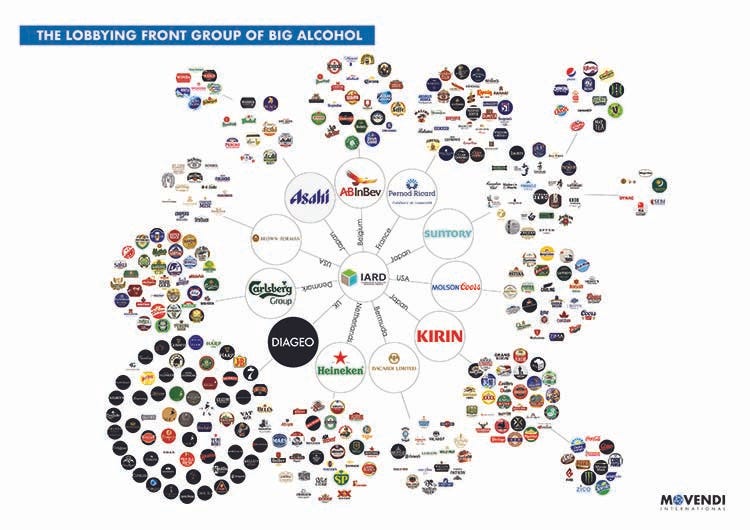
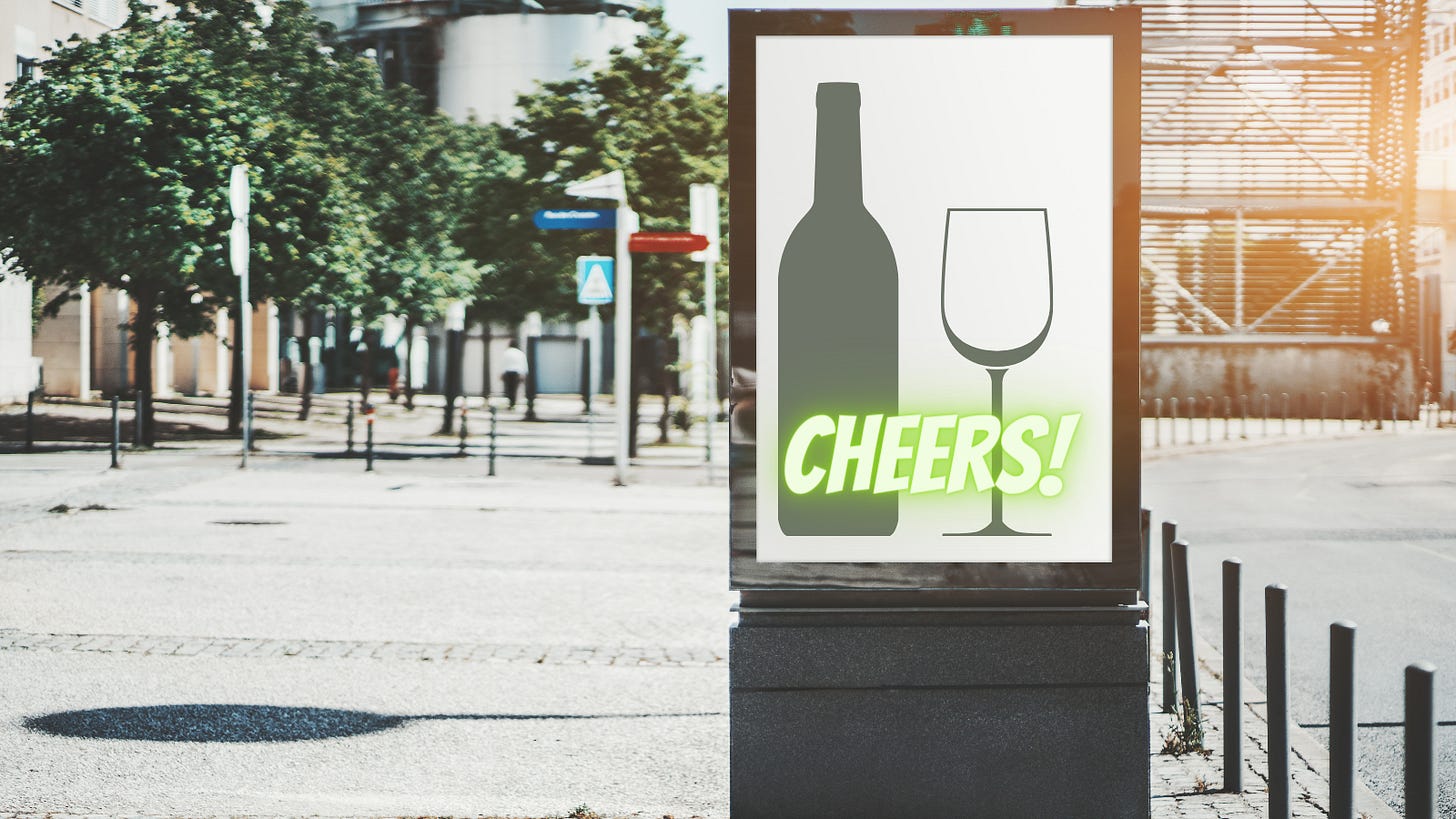
Thank you Cecily for this week’s focus on Big Alcohol’s nefarious, exploitative strategy to encourage the consumption of their Group 1 carcinogenic products. No better example of this will be presented than on Super Bowl Sunday (2/11) when an estimated audience of 115+ million people, including 30 million underaged fans, will be subjected to upwards of 5-10 minutes of clever, funny, seductive ads for beer and other alcoholic beverages. Anheuser-Busch alone will be leading the charge with two and one-half minutes of horses, dogs and patriotic flag waving ads costing them $7 million dollars every 30 seconds to burn alcohol brands into the developing brains of youth and other vulnerable people. Can you imagine the tobacco industry hiding behind “Smoke Responsibly” printed on their packaging? This is what the alcohol industry does that supposedly relieves them of any responsibility for the harm their products cause.